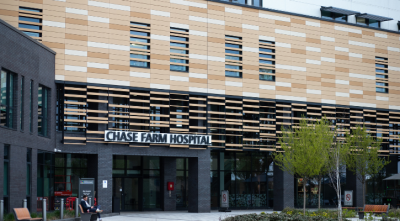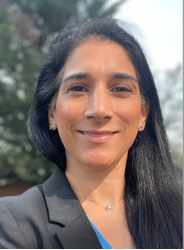Anyone registered with a GP as a female and aged between 50 and 71 is invited to a breast screening appointment once every three years.
If you are over the age of 71, you can still have a free breast screen every three years — you may not be sent an invitation, but you are encouraged to call our breast screening unit to make an appointment.
Breast screening aims to detect breast cancer at an earlier stage, often before the woman is aware of any problem.
Early detection may mean simpler and more successful treatment. Scientific evidence shows regular breast screening, between the ages of 50 to 71, reduces the death rate from breast cancer.
The NHS breast screening programme is subject to monitoring by the Screening Quality Assurance Service. It ensures rigorous quality assurance standards are maintained.
Our services and clinics
To enable women to be screened closer to home, we carry out breast screening at a number of sites.
The Royal Free London hosts two breast screening services:
NLBSS provides screening for an eligible population of over 275,000 women who live in Barnet, Brent, Enfield, Haringey, Harrow and West Hertfordshire.
It has static breast screening clinics at Edgware Community Hospital (Deansbrook House), Chase Farm Hospital, Finchley Memorial Hospital, and Forest Primary Care Centre.
Deansbrook House at Edgware Community Hospital sees patients who require further screening or assessment.
CELBSS provides screening for an eligible population of over 140,000 women who live in Camden, Hackney and the City, Islington, Newham, Tower Hamlets and Waltham Forest.
It has static breast screening clinics at Kentish Town Health Centre, Mile End Hospital, the Sir Ludwig Guttmann Health and Wellbeing Centre, and St Bartholomew’s Hospital.
The clinic at St Bartholomew’s sees patients who require further screening or assessment.
There are also a number of mobile breast screening sites across both regions.
Click the link below and select your area for a full list of these sites.
Your questions answered
From ‘what is a mammogram?’, to information on why you may have been invited for further assessment, click the link below.
The following websites can provide more information and advice:
- Work of Mouth Mammogram e-network: an independent website with lots of information, videos and chat forums intended to complement the NHS breast screening information already available
- Breast Cancer Now: a breast cancer charity
- CoppaFeel: a breast health awareness charity
- healthtalk.org: a database of patient experiences
- NHS breast screening programme: detailed information on the national programme
- Breast screening — common questions answered: information from the NHS
 Translate
Translate




